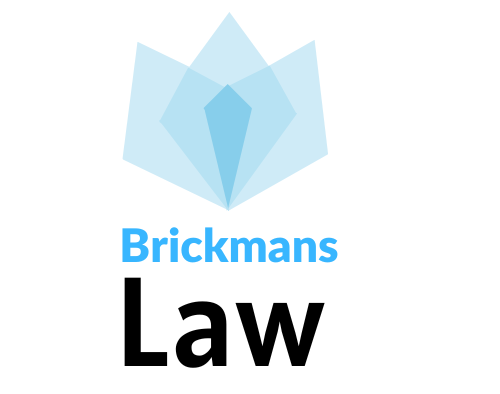The Legality of Prostitution in Nigeria
INTRODUCTION
Prostitution is commonly referred to as one of the oldest professions in the world. According to a 2011 report by Fondation Scelles,1 there were about 40 to 42 million prostitutes in the world with an 80% female and 20% male distribution. The Joint United Nations Programme on HIV/AIDS (UNAIDS) estimates that there are 103,506 prostitutes in Nigeria.2
Prostitution can be defined as the act or practice of engaging in sex acts and especially sexual intercourse in exchange for pay.3 The Criminal Code Act states that “prostitution” (with its grammatical variations and cognate expressions) includes the offering by a female of her body commonly for acts of lewdness for payment although there is no act or offer of an act or ordinary sexual connection. Prostitution can present itself in various forms. Some of them are:
- Brothel work: a brothel is a location or business establishment where sex workers are available for hire.4 The Criminal Code defines a “brothel” as any premises or room or set of rooms in any premises kept for purposes of prostitution. People often use terms such as bars, joints, massage parlor, guest house and lodge to refer to brothels for legal and cultural reasons.
- Escort Agency Service: an escort service is a business that arranges dates for paying customers, frequently serving as a cover for prostitution in areas where it is prohibited. Since prostitution laws usually prohibit accepting payment for sex or communicating in order to arrange a contract for sexual services, escort firms represent themselves as merely sending their agents to provide a social service to keep the clients company rather than a sexual one.
- Street Prostitution: Street prostitution is a type of prostitution where a prostitute waits at street corners or walks beside a street, or other public places, to recruit clients from the public.
- Window Prostitution: This form of prostitution that started in the Netherlands as a result of a ban on soliciting on the street or in doorways. A prostitute who hires a window and workplace from a window operator for a set amount of time typically a day or a portion of a day is engaging in window prostitution.
- Call Girl: a call girl is an independent sex worker who does not publicly advertise sexual services on the streets but rather provides a phone number or other contact information through which clients can arrange for sexual services.
LEGAL STATUS OF PROSTITUTION IN NIGERIA
It is interesting to note that although the Criminal Code Act5 contains provisions related to prostitution, it does not impose any penalty on the prostitute. It only punishes those who facilitate prostitution such as the pimp or landlord who lets his premises with the knowledge that it will be used for prostitution.
Section 223 of the Criminal Code Act provides that any person who procures a girl or woman who is under the age of eighteen years to have unlawful carnal connection with any other person or persons either in Nigeria or elsewhere or procures a woman or girl to
become a common prostitute either in Nigeria or elsewhere; or procures a woman or girl to leave Nigeria with intent that she may become an inmate of a brothel elsewhere; or procures a woman or girl to leave her usual place of abode in Nigeria, with intent that she may, for the purposes of prostitution, become an inmate of a brothel either in Nigeria or elsewhere, is guilty of a misdemeanour and is liable to imprisonment for two years.
Section 225 states that every male person who knowingly lives wholly or in part on the earnings of prostitution; or in any public place persistently solicits or importunes for immoral purposes is liable to imprisonment for two years, and in the case of a second or subsequent conviction, shall, in addition to any term of imprisonment awarded, be liable to caning.
Any magistrate who is satisfied, by evidence upon oath, that there is reason to suspect that any premises or any part of any premises are or is used by a female for purposes of prostitution, and that any male person residing in or frequenting the premises is living wholly or in part of the earnings of the prostitute, may issue a warrant under his hand authorising any constable to enter and search the premises and to arrest that male person.6
Where a male person is proved to live with or to be habitually in the company of a prostitute or is proved to have exercised control, direction, or influence over the movements of a prostitute in such a manner as to show that he is aiding, abetting, or compelling her
prostitution with any other person or generally, he shall, unless he can satisfy the court to the contrary, be deemed to be knowingly living on the earnings of prostitution.7
The Supreme Court in Alphonsus Duru v. IGP8 further expatiated on what must be proved before a person charged for the offence of living on earnings of prostitution can be convicted. The Court stated that “Prostitutes, no less than others, require food, clothing, and shelter, and must pay for them with the earnings of prostitution. If the grocer were to be guilty of living in part on such earnings by selling food to them, he must refuse to sell and they must either beg for food or starve. It is good sense to say that he is not guilty when selling to them in the ordinary way of his business. Likewise with a landlord who lets a house, flat, or room, to a prostitute for residence in the ordinary way of letting. For him to be guilty when letting to a prostitute, there must be something peculiar and sinister about it”.
Also, every female who is proved to have, for the purposes of gain, exercised control, direction or influence over the movements of a prostitute in such a manner as to show that she is aiding, abetting or compelling her prostitution with any person or generally, is liable to imprisonment for two years.9
Section 225B prohibits keeping a brothel. It provides that whoever keeps or manages or assists in the management of a brothel; or being the tenant, lessee, or occupier or person in charge of any premises, knowingly permits such premises or any part thereof to be used as a brothel or for the purposes of habitual prostitution; or being the lessor or landlord of any premises, or the agent of such lessor or landlord, lets the same or any part thereof with the knowledge that such premises or some part thereof are or is to be used as a brothel, or is wilfully a party to the continued use of such premises or any part thereof as a brothel, is liable to a fine of one hundred naira or to imprisonment for six months; and on a second or subsequent conviction, to a fine of three hundred naira or to imprisonment for one year, or in either case, to both such fine and imprisonment. The Trafficking in Persons (Prohibition), Enforcement and Administration Act, 2015 also prohibits the importation, exportation and procurement of any person for the purpose of prostitution10
On the other hand, the Penal Code which is applicable in Northern Nigeria deals more specifically with the prostitute. It provides that whoever is convicted as being an idle person shall be punished with imprisonment for a term which may extend to one month or with fine or with both.11 The Act goes further to define who an “idle person” is. It states that “the term “idle person” shall include “a common prostitute behaving in a disorderly or indecent manner in a public place or persistently importuning or soliciting persons for the purpose of prostitution.”12
Furthermore, Section 407 states that whoever is convicted as being a vagabond shall be punished with imprisonment which may extend to two years or with fine which may extend to four hundred and fifty naira or both. The term “vagabond” includes “any male person who knowingly lives wholly or in part on the earning of a prostitute or in any public place solicits or importunes for immoral purposes”13
The Act provides that whoever keeps or manages a brothel shall be punished with imprisonment which may extend to one year or with a fine or with both.14
Section 278 provides that whoever buys, sells, hires, lets to hire or otherwise obtains possession or disposes of a person under the age of eighteen years with intent that the person shall be employed or used for the purpose of prostitution or for an unlawful or
immoral purpose or knowing it to be likely that such minor will be employed or used for any such purpose, shall be punished with imprisonment for a term which may extend to ten years and shall also be liable to fine.
CONCLUSION
Prostitution has been in existence from time immemorial and continues to flourish in modern times. While the criminal code operational in the southern part of Nigeria merely criminalizes the procurement of prostitution and imposes penalties on third parties who benefit from prostitution, the Penal Code of Northern Nigeria as well as the applicable Sharia laws not only impose penalties on third parties but also deal directly with the sex workers to prohibit prostitution.
References
1 Gus Lubin (17 January 2012). “There Are 42 Million Prostitutes In The World, And Here’s Where
They Live”. Business Insider. Retrieved 17 December 2024.
2 “Sex workers: Population size estimate – Number, 2016”. www.aidsinfoonline.org. UNAIDS.
Archived from the original on 4 June 2019. Retrieved 17 December 2024.
3 https://www.merriam-webster.com/dictionary/prostitution. Retrieved 17 December 2024.
4 https://www.merriam-webster.com/dictionary/brothel. Retrieved 16 December 2024.
5 Cap C38 LFN 2004.
6 Section 225(2) Criminal Code Act
7 Section 225(3) Criminal Code Act
8 (1965) LPELR-25235(SC) Per VAHE ROBERT BAIRAMIAN, JSC (Pp- 4 – 6, F – F)
9 Section 225(2) Criminal Code Act
10 Section 14-16
11 Section 406 of the Penal Code Act
12 Section 405(1)(d) of the Penal Code Act
13 Section 407(1)(d) of the Penal Code Act
14 Section 201 of the Penal Code Act




